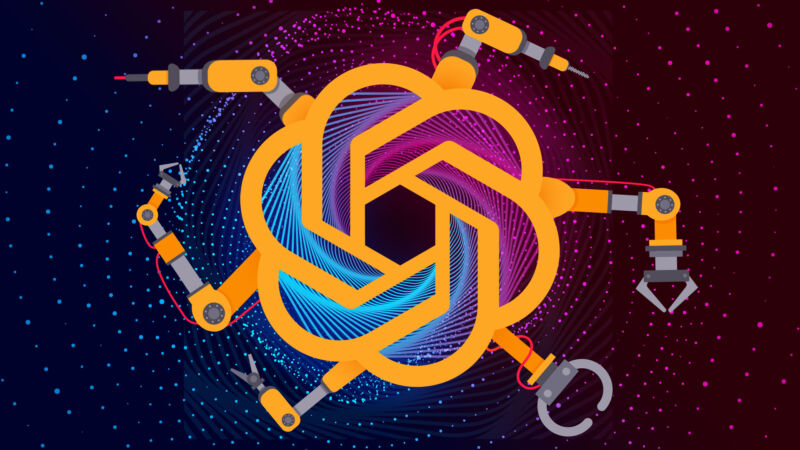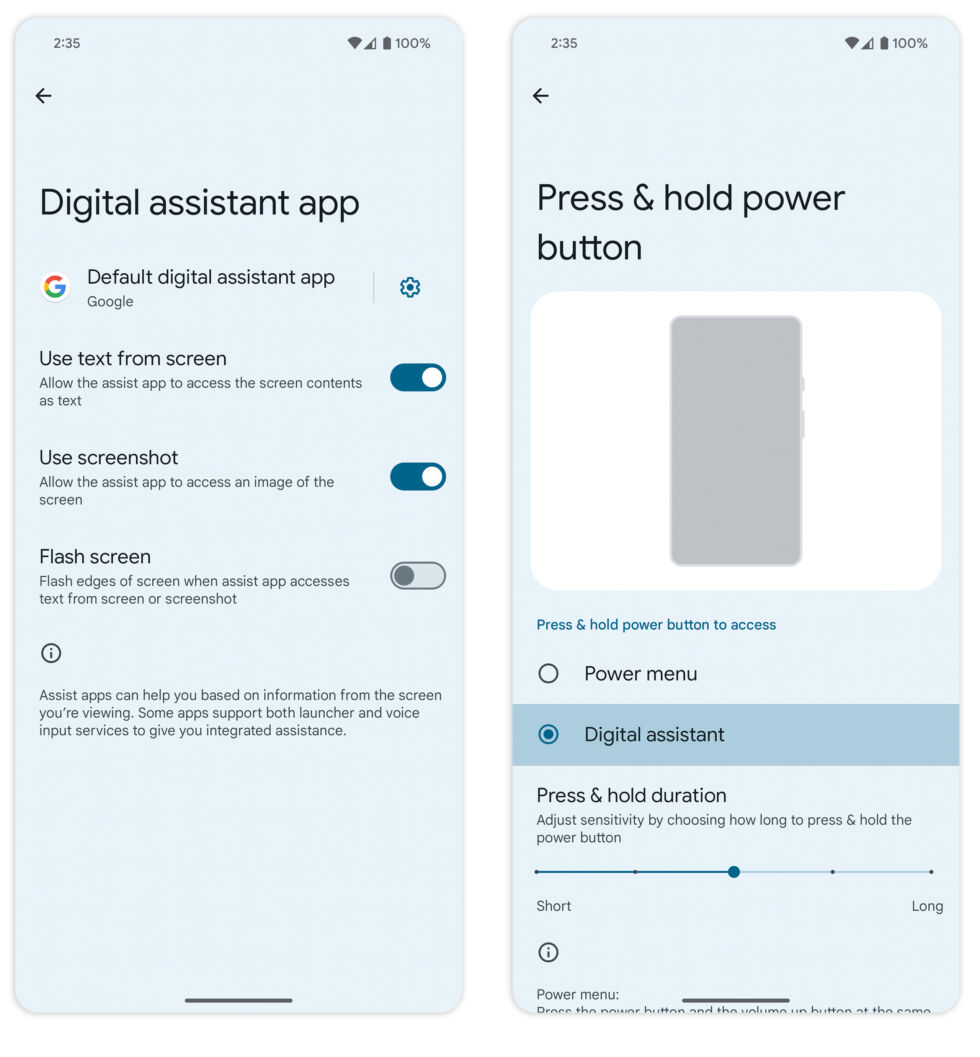Who’s going to make a ChatGPT speaker? —
The Android ChatGPT app is working on support for Android’s assistant APIs.

Aurich Lawson | Getty Images
Hey Android users, are you tired of Google’s neglect of Google Assistant? Well, one of Google’s biggest rivals, OpenAI’s ChatGPT, is apparently coming for the premium phone space occupied by Google’s voice assistant. Mishaal Rahman at Android Authority found that the ChatGPT app is working on support for Android’s voice assistant APIs and a system-wide overlay UI. If the company rolls out this feature, users could set the ChatGPT app as the system-wide assistant app, allowing it to pop up anywhere in Android and respond to user questions. ChatGPT started as a text-only generative AI but received voice and image input capabilities in September.
Usually, it’s the Google Assistant with system-wide availability in Android, but that’s not special home cooking from Google—it all happens via public APIs that technically any app can plug into. You can only have one app enabled as the system-wide “Default Assistant App,” and beyond the initial setting, the user always has to change it manually. The assistant APIs are designed to be powerful, keeping some parts of the app running 24/7 no matter where you are. Being the default Assistant app enables launching the app via the power button or a gesture, and the assist app can read the current screen text and images for processing.

Enlarge / The Default Assistant App settings.
Ron Amadeo
If some Android manufacturer signed a deal with ChatGPT and included it as a bundled system application, ChatGPT could even use an always-on voice hotword, where saying something like “Hey, ChatGPT” would launch the app even when the screen is off. System apps get more permissions than normal apps, though, and an always-on hotword is locked behind these system app permissions, so ChatGPT would need to sign a distribution deal with some Android manufacturer. Given the red-hot popularity of ChatGPT, though, I’m sure a few would sign up if it were offered.
Rahman found that ChatGPT version 1.2023.352, released last month, included a new activity named “com.openai.voice.assistant.AssistantActivity.” He managed to turn on the normally disabled feature that revealed ChatGPT’s new overlay API. This is the usual semi-transparent spinning orb UI that voice assistants use, although Rahman couldn’t get it to respond to a voice command just yet. This is all half-broken and under development, so it might never see a final release, but companies usually release the features they’re working on.
Of course, the problem with any of these third-party voice assistant apps as a Google Assistant replacement is that they don’t run a serious app ecosystem. As with Bixby and Alexa, there are no good apps to host your notes, reminders, calendar entries, shopping list items, or any other input-based functions you might want to do. As a replacement for Google Search, though, where you ask it a question and get an answer, it would probably be a decent alternative.
Google has neglected Google Assistant for years, but with the rise of generative AI, it’s working on revamping Assistant with some Google Bard smarts. It’s also reportedly working on a different assistant, “Pixie,” which would apparently launch with the Pixel 9, but that will be near the end of 2024.